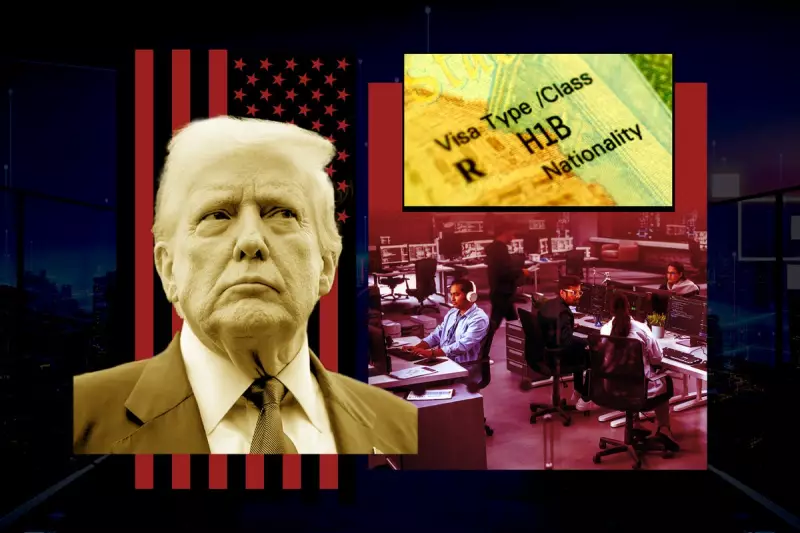
In a striking political pivot, former US President Donald Trump has indicated a potential softening of his historically hardline stance on the H-1B visa programme, a primary conduit for skilled foreign workers, particularly in the technology sector.
The policy shift, emerging during a recent interview, was met with immediate and public endorsement from two of the most influential figures in modern conservatism: Tesla and SpaceX CEO Elon Musk and Republican presidential hopeful Vivek Ramaswamy.
A Notorious History and a New Position
Mr. Trump's administration was famously characterised by an "America First" approach to immigration, implementing stricter regulations and criticising visa programmes he argued undercut American workers. The H-1B system, which allows US companies to employ graduate-level workers in specialised fields, often faced his ire.
However, his new comments suggest a recognition of the programme's critical role in fueling innovation, especially within the competitive tech and engineering industries that rely on global talent.
The Tech Titans Weigh In
Elon Musk, who has frequently utilised the H-1B system to hire top-tier engineering talent for his companies, succinctly endorsed the move on his social media platform, X (formerly Twitter), posting "Yes" in response to the news.
Similarly, entrepreneur Vivek Ramaswamy, who has made merit-based immigration a cornerstone of his own presidential campaign, applauded Trump's apparent evolution on the issue. This alignment suggests a growing consensus within certain GOP circles on the economic necessity of attracting and retaining high-skilled labour.
What This Means for the US Tech Industry
A more open approach to the H-1B visa programme under a potential future Trump administration would mark a significant victory for Silicon Valley and tech hubs across the United States. For years, industry leaders have lobbied for an expansion of the programme, arguing that a shortage of domestic skilled workers threatens America's edge in global technology and artificial intelligence.
This potential policy reversal signals a pragmatic approach to economic competition, particularly with China, prioritising the need for highly skilled innovators regardless of their country of origin.
The news has undoubtedly ignited a fierce debate, drawing praise from business leaders and criticism from immigration hardliners who supported Trump's original restrictions. The evolving stance will likely remain a key topic as the 2024 election cycle intensifies.





